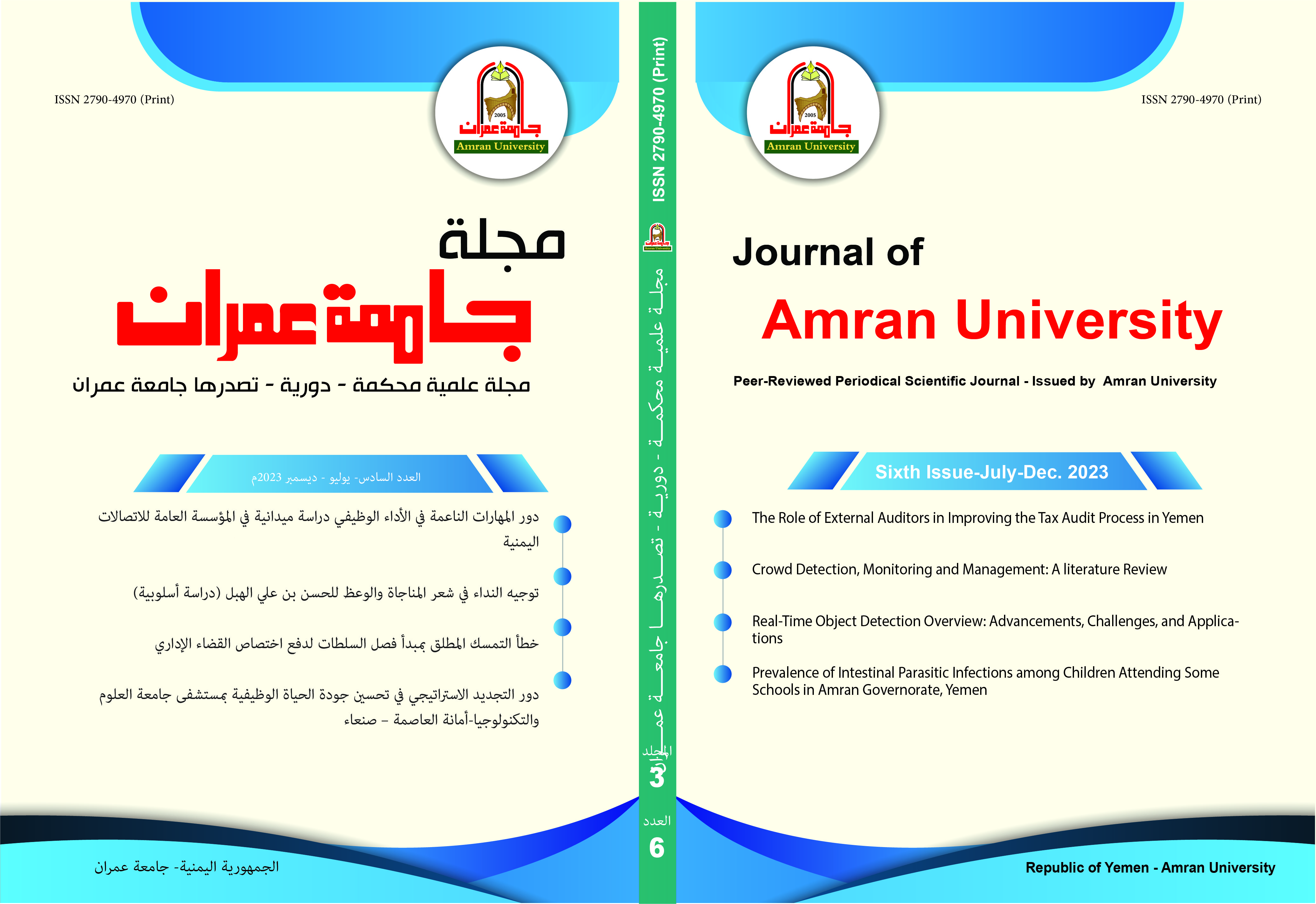Prevalence of Intestinal Parasitic Infections among Children Attending Some Schools in Amran Governorate, Yemen
DOI:
https://doi.org/10.59145/jaust.v3i6.74Keywords:
Intestinal Parasite, Prevalence, Schoolchildren, Amran, Yemen.Abstract
Intestinal parasitic infections (IPIs) are a global health issue among schoolchildren, with high morbidity and mortality. Therefore, this study aimed to determine the prevalence of intestinal parasite infections among schoolchildren in the Amran governorate, Yemen. Methods: This is a cross-sectional study carried out among 200 schoolchildren aged 7–15 years between December 2021 and March 2022. The stool specimens were collected and the parasite species was detected according to standard laboratory methods. Results: The overall rate of parasite infection was 48%. Entamoeba histolytica was the most prevalent parasite among children (25%), followed by Giardia lamblia (13.5%), Entamoeba coli (12%), Enterobius vermicularis (10%), and Hymenolepis nana (6.5%). Furthermore, a higher infection was among males (57%), those aged 7 to 10 (45%), those whose parents had a basic education (60.7%), and those who consume unwashed vegetables and fruits (57.7%). Additionally, a higher infection was among those who do not wash their hands after defecation (57.7%) and individuals who maintain their nails (54.8%). Conclusion: As a result of the high prevalence of IPIs among the study's participants, environmental sanitation, personal hygiene, and health education are all required for promotion in order to avoid parasitic infection among children
Downloads
Published
How to Cite
Issue
Section
License
Copyright (c) 2023 JOURNAL OF AMRAN UNIVERSITY

This work is licensed under a Creative Commons Attribution-NonCommercial-NoDerivatives 4.0 International License.

